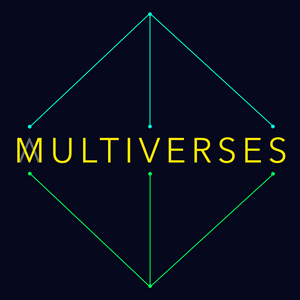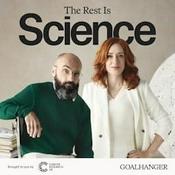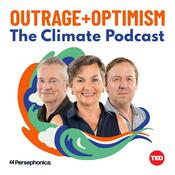40 episodes

Molecules & Mirrors —Vanessa Seifert on the Philosophy of Chemistry
05/12/2025 | 1h 9 mins.
Why do molecules have a "handedness" when the physics that determines their structure does not?* This is a question emblematic of the philosophy of chemistry; at times, it has been used to argue that chemistry cannot be reduced to physics. However, Vanessa Seifert has a different — yet equally intriguing — answer. This symmetry breaking is closely linked to that contentious area of quantum mechanics: the measurement problem. Vanessa is a Marie Skłodowska-Curie Postdoctoral Fellow based at the University of Athens and a visiting fellow at the University of Bristol. In addition to molecules, we discuss the project of reductionism, laws, and alchemy. I found this to be a wonderful example of the fruitfulness of turning the philosophical gaze to sciences beyond physics.*(Note, it can't be explained by the chirality of the weak nuclear force)Linksvanessa-seifert.com has links to Vanessa's publications and popular writing — her articles on philosophy in Chemistry World are a great introduction to a broad range of topicsmultiverses.xyz Multiverses home

Consciousness is not Computation — Christof Koch
02/5/2025 | 1h 2 mins.
Christof Koch is a pioneering neuroscientist and one of the most prominent advocates of a scientific approach to consciousness. He has spent decades working at the intersection of neuroscience, philosophy, and computation.Christof is one of the foremost proponents of Integrated Information Theory (IIT) — a radical proposal that attempts to explain consciousness in terms of causal structure. IIT begins not with the brain, but with experience itself. It takes as its starting point what is undeniable: that something is happening right now — that experience exists. It then looks at the features of conscious experience, for example, that is unified yet composed of parts, and contentful. From there, it builds a theory describing which physical systems support conscious states. In this conversation, Christof and I explore what a scientific theory of consciousness might need to achieve, and why behavior alone — even the impressive feats of AI is not enough. Nor indeed is any computational account of consciousness: consciousness is about structure, two structures may lead to the same outcomes, but their form might mean that one is conscious and the other not. But we also touch on experience beyond theory — Christof’s reflections on psychedelic experiences and the dissolution of the self.This is a conversation about what it means to be a whole, what makes a system truly unified — and what it might take to understand, and perhaps even expand, the field of consciousness. Christof’s latest book is Then I Am Myself the World: What Consciousness Is and How to Expand It.

Where Does It End? — Adrian Moore on The Infinite
14/3/2025 | 1h 16 mins.
Infinity may seem simple, just the absence of limits. But the closer we examine it, the more it unravels into paradox and mystery. Can some infinities be larger than others? How can an infinite hotel be fully booked yet still have room for more guests?In this episode of Multiverses, I’m joined by Adrian Moore, professor of philosophy at Oxford, to explore these questions. We dive into Hilbert’s Hotel, Cantor’s revolutionary work on transfinite numbers, and the philosophical and even theological implications of the absolute infinite—the place where maths itself seems to break down.Along the way, we ask: Is infinity something we can ever truly grasp? Or does it forever retreat beyond our understanding?If you like these topics, where science, maths give way to the unstable ground of philosophy ... subscribe!Adrian's academic homepageAdrian's book: The Infinite

37| Mind-Wandering — Kalina Christoff Hadjiilieva on the Science of Spontaneous Thought
31/1/2025 | 1h 38 mins.
Mind-wandering is often dismissed as a distraction, an idle drift away from productive thought. But what if this spontaneous movement of the mind is not just a quirk of cognition but a fundamental feature of how we think, create, and find meaning? Our guest, Kalina Christoff Hadjiilieva, is a Professor of Psychology at the University of British Columbia where she leads The Cognitive Neuroscience of Thought Laboratory. Her work explores the neural mechanisms behind mind-wandering, uncovering how our brains shift between goal-directed focus and free-flowing exploration. Kalina argues that mind-wandering is not a failure of attention but an essential cognitive process—one that fuels creativity, problem-solving, and insight. While some scientists define mind-wandering narrowly as thinking about anything other than the task at hand, she proposes a broader, more dynamic definition: mind-wandering is thought moving freely, unconstrained by immediate demands or rigid patterns. Neuroscience has long favored studying controlled, deliberate cognition. The executive brain functions—the ones we can track, measure, and influence—are often given priority. But Kalina points out that the vast majority of brain activity is spontaneous and unexplained. She advocates for a shift in perspective: instead of treating free thought as noise, we should recognize its role in structuring our experiences, shaping our beliefs, and allowing us to make sense of the world. Mind-wandering, Kalina suggests, is not just about distraction—it is about discovery.

36| History of Science: Mythmaking & Contingency — Patricia Fara
23/12/2024 | 1h 29 mins.
Scientific discoveries can often be codified in simple laws, neatly stated in textbooks with directions on applying them. But the enterprise of science is embedded in society. It depends on individuals and economies. It is far from simple to answer the question: How did we get these laws? Patricia Fara is an Emeritus Fellow of Clare College, Cambridge. She is a former president of the British Society for the History of Science and has written Science: A Four Thousand Year History, Newton: The Making of Genius, and numerous other books. Patricia discusses the way we often mythologize individual scientists and how the notion of genius has changed over the centuries. She also highlights lesser-known figures, such as Hertha Ayrton, whose contribution should not be measured merely in scientific breakthroughs, but in how they paved the way for further women scientists.
More Science podcasts
Trending Science podcasts
About MULTIVERSES
Listen to MULTIVERSES, Our Changing World and many other podcasts from around the world with the radio.net app

Get the free radio.net app
- Stations and podcasts to bookmark
- Stream via Wi-Fi or Bluetooth
- Supports Carplay & Android Auto
- Many other app features
Get the free radio.net app
- Stations and podcasts to bookmark
- Stream via Wi-Fi or Bluetooth
- Supports Carplay & Android Auto
- Many other app features


MULTIVERSES
download the app,
start listening.

































